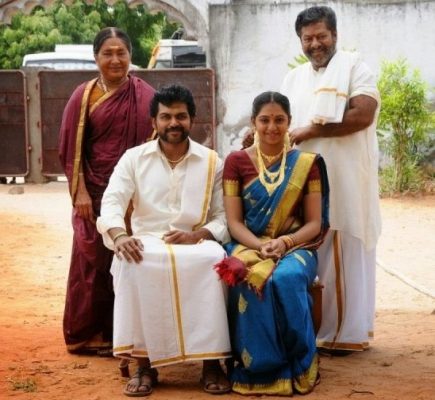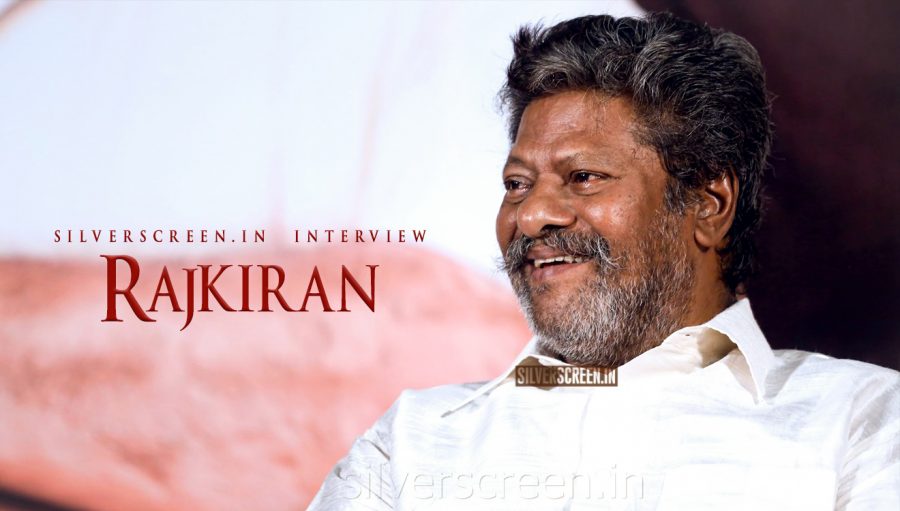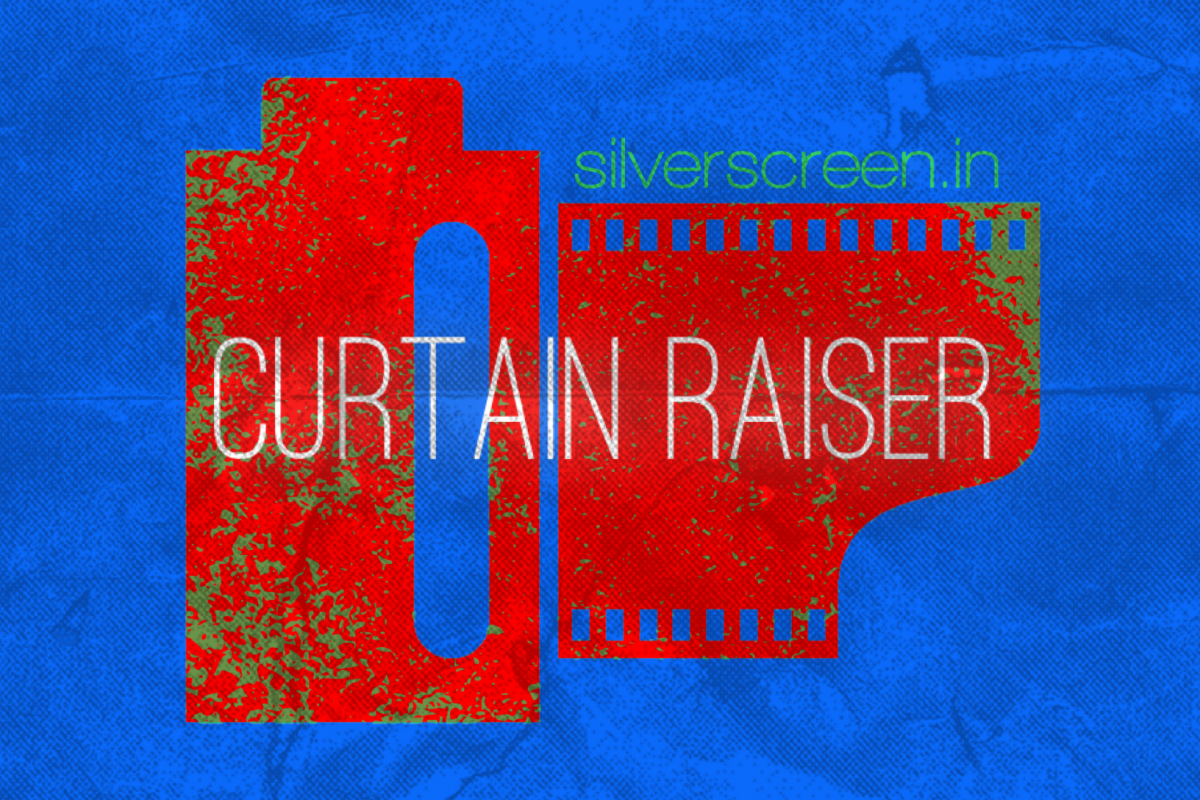Rajkiran has been quite a kindly presence in movies lately. All fond smiles and kind words, he’s now the gruff grandfather of Tamil cinema
I used to be terrified of this man. The hulking frame, and his insatiable appetite did not help either. Rajkiran was something of an anti-hero. And his films, if anything, capitalized on his attributes. In his debut, En Rasavin Manasile, he takes his wife by force; rapes her. Meena, who played the wife, always has a sob up her throat. She would cower in fear when he comes home. It’s not a scene that one can forget.
Right now though, Rajkiran’s mistakes are a thing of the past. At least, until the furore over Power Paandi dies down.
En Rasavin Manasile was a sort of romance, the actor says. “Men, who are used to taking things from people by force, will love by force. It’s a brutish, brutal kind of love. But it is love, nonetheless. ‘Saraayam kudikkaravan samsaaram panna mudiyathu‘, someone told me this a long time back – it is true!”
[You cannot stay married when you drink]
*****
Power Paandi is everything that Rajkiran hasn’t been. If Pandavar Bhoomi and movies of its ilk had established him firmly in the strict paternal roles, and Manjapai had taken that a step ahead, but turned him benevolent, Power Paandi is complete upheaval.
In a nice way, though.
The director had set out with an agenda, it would seem. To turn Rajkiran into a straight A centre artiste. And, you can’t help but fall in love with the actor in the leather jacket, trying different poses for his Facebook profile. He also romances a woman in her fifties, and he does that naturally. The transition from the benevolent grandfather to the nervous lover is seamless. “Now Dhanush has turned me into a gentle giant,” he laughs. “He has made me upmarket – all things I never was in my 20-year acting career.”
For the actor who was once labelled a ‘B’ Centre guy, this is a huge switch. A pleasant one. “I’m happy with the way things are progressing in my professional life,” he declares, “but that’s not enough. We’re all existing at a time when there’s no harmony. There are rising instances of communal violence, and every Muslim is looked on with fear.”
Once, Rajkiran, who was born Mohideen Abdul Khadar (according to Wikipedia), recalls someone telling him that it was a “good thing” that his screen name sounded “Hindu”. “Else, the person said, I might not have had a career…”
Stereotypes about Muslim men, the actor explains, adds to the fear. “I heard a woman complaining on sets about a Muslim auto-driver who wore kajal. She said he looked like a terrorist, and made her feel uncomfortable. Another person spoke to me at length about the ‘weird’ rituals Islam has. Every religion has its idiosyncrasies, but right now it feels like Islam is not being given a chance.”
Indian cinema has done its best to let these stereotypes flourish, Rajkiran insists. “There are not many films, at least South Indian films, with a Muslim male lead. There’s no attempt to showcase their lives. At best, they’re the hero’s best friend or maybe, a passerby.”
Many a time, Rajkiran has been urged to make a film that would shine light on real Muslim men and women. “But, I made a vow to myself when I joined the industry, that I would always rise above my caste and creed. I want to serve the Tamil people, not people of my religion. Unfortunately, this is a sentiment few artists share at present.”
Observing that there’s a huge caste bias in the industry, Rajkiran says that it is time the younger filmmakers chose to make secular content.
 Though, despite his secular rhetoric, through much of his career, Rajkiran has been a part of films that subtly emphasised the dominance of one Tamil caste over another.
Though, despite his secular rhetoric, through much of his career, Rajkiran has been a part of films that subtly emphasised the dominance of one Tamil caste over another.
Like the recent Komban.
The actor insists that he did not realise the ideology being served onscreen till it was too late to do anything about it. “I think people cannot be so self-aware and aware of things in general to predict what is to happen. Everybody knows such films are not for the good of the society, so they do it in such a way that only people of the background they’re referring to will understand. It’s like talking in code, and sometimes, the actor bringing all this to life onscreen is never really let in on the secret.”
Recommended
Rajkiran doesn’t dwell a lot on the past, though. And this attribute has powered his career, with stellar roles in films like Sivappu, Komban, Manjapai among others. “The best is yet to come. I have signed some more interesting roles, and they will all be socially relevant. I made a promise to myself when I saw my career getting revived. I told myself that I would give back to society in a way I did not in the first half of my career. Now that I’ve gotten another chance, I’m going to make good on that promise,” he declares.
More than anything, Rajikiran wants to leave behind a better world for future generations. “I want to see a world full of love and affection. One way we can do this is to propagate peace over violence in our films. I play a stunt master in Power Paandi, but I hope that in the future, there will be less stunts, and more love in films.”
Coming from the actor who has never thought twice about putting those meaty arms to good use, that’s some solid advice, indeed.
*****
The Rajkiran interview is a Silverscreen exclusive.



